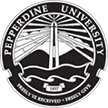Cal Interpreting & Translations (CIT) provides Arabic translation services for various Semitic languages in including Aramaic and, Hebrew.
Our Arabic interpreters and translators are experienced in legal, medical, and specialty experience, including criminal and civil matters, employee meetings, engineering, patent cases, labor disputes, immigration and more.
Although based in Los Angeles, CIT offers comprehensive Arabic language services including interpretation, translation and transcription, 24 hours a day, 7 days a week, worldwide. Our interpreters and translators are native speakers who have been screened, certified, have provided credentials, field tested, and kept up to date with developments in both English and the Arabic language through means such as lectures, conferences, and travel. CIT’s Arabic language interpreters and translators possess in depth knowledge of the Arabic language, as well as of the culture and history of the Arabic people, allowing them to provide informed and complete interpretation and translation.
It's important to note that Arabic is not the same as or in the same language family as Farsi.
The Arabic language, or differing dialects of the language, is becoming one of the most popular languages spoken worldwide. It is among the 6 of the most commonly spoken languages in the world. Arabic has been around for more than 1000 years. Today, over 400 million people speak Arabic. Of all the dialects, Egyptian Arabic is known to be the “true” Arabic and is the most commonly spoken dialect of Arabic. Originating in the Arabian Peninsula, it was first spoken by the nomadic tribes in the northwest of the peninsula.
The word “Arabic” itself means “nomadic.” Arabs, or nomads, were those who inhabited the land between Mesopotamia, Lebanon, Arabia and Sinai.
Like many other languages, Arabic is from the Semitic family of languages. Other Semitic languages include Akkadian, Hebrew, Aramaic, Amharic and Syriac. Of these languages, Arabic is the most commonly spoken. Other dialects of Arabic, such as Tigre (spoke in Eritrea) and Berber (spoken in the mountains of Morocco and Algeria) are also Semitic languages. The Arabic language spread because of the nomads having traveled as much as they did. Arabs would intermarry often with natives from lands they would come across, which helped to further spread the Arabic language. Through the Arab Conquests in the 7th century, Arabic spread throughout Northern Africa, the Iberian Peninsula and even to what is now known as China.
It is commonly accepted that most of Arabic history is derived from what is written in the Qur’an. The Qur’an (Koran), which is the holy book of the Islamic faith, documents the events of an Arabic man named Muhammad, who was sent away from his home by God. These events are in line with the time the Arabic language was first recorded, around 7th century AD.
Modern Standard Arabic (MSA) is the most classical form of Arabic and essentially identical to the Classical Arabic of the Qur’an. It is the most common type of Arabic and is used in the workplace, education, government and in the media as well.
Like many other languages that travel, Arabic has adopted words from other languages along with made its way to other languages such as Hebrew, Aramaic, Farsi, Greek, English and French. It has also had an influence on other languages such as Turking, Hindi, Bengali, Indonesian and Tagalog.


No matter what your needs may be, we can and are ready to assist you now. We have translators and interpreters standing by 24/7.

CIT's interpreter is such a rockstar, and it’s so great to have him as a lead interpreter for our Board meetings. About Our Interpreters 
Thank you for always being able to handle emergency interpreting assignments with ease. About Urgent Requests 
Thank you for always being able to handle emergency interpreting assignments with ease. About Urgent Requests 
Your translation rates are more competitive than other language service providers I used in the past. About Pricing 

Professionalism matters at CIT. We respond to request inside 24 hours.







